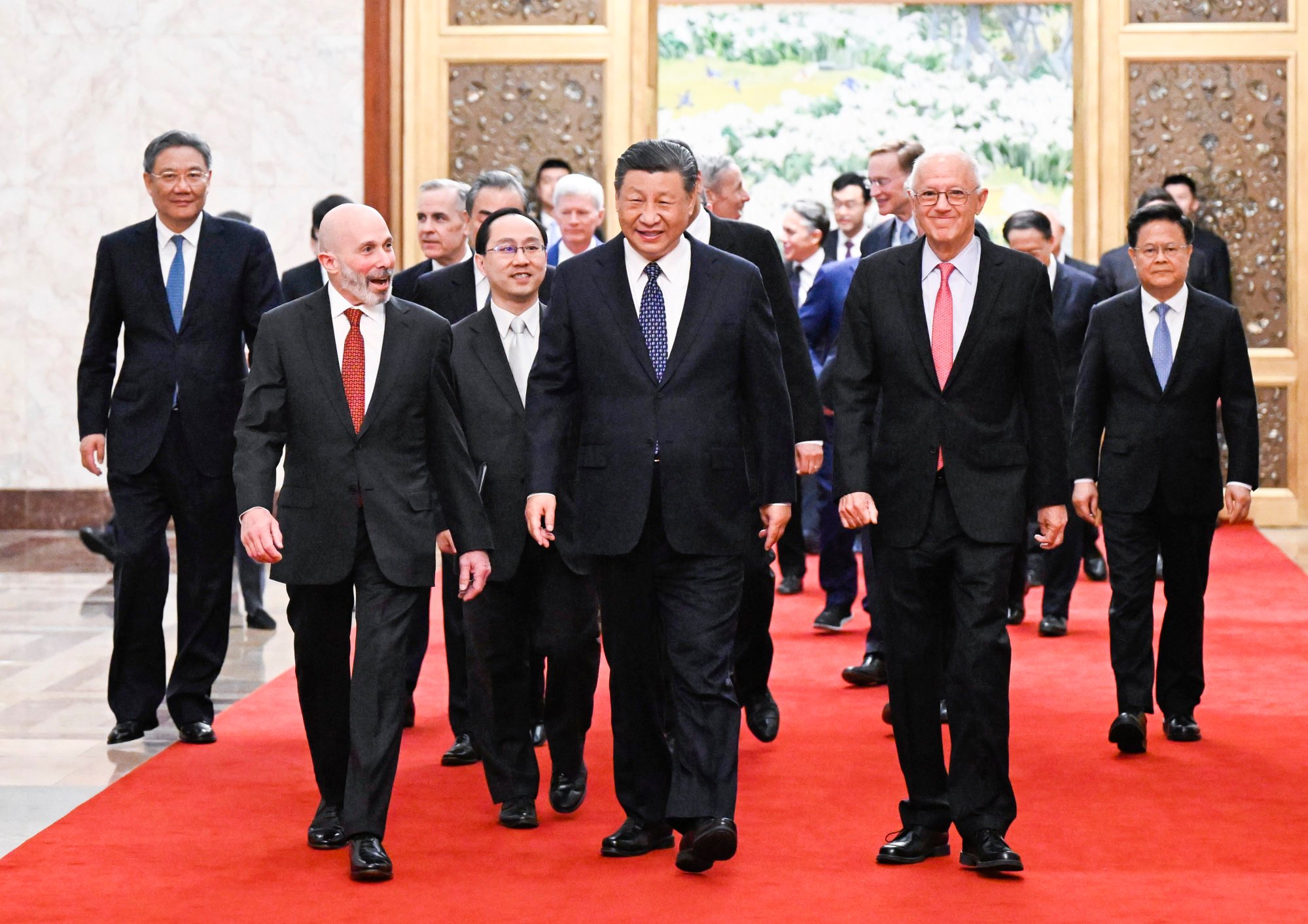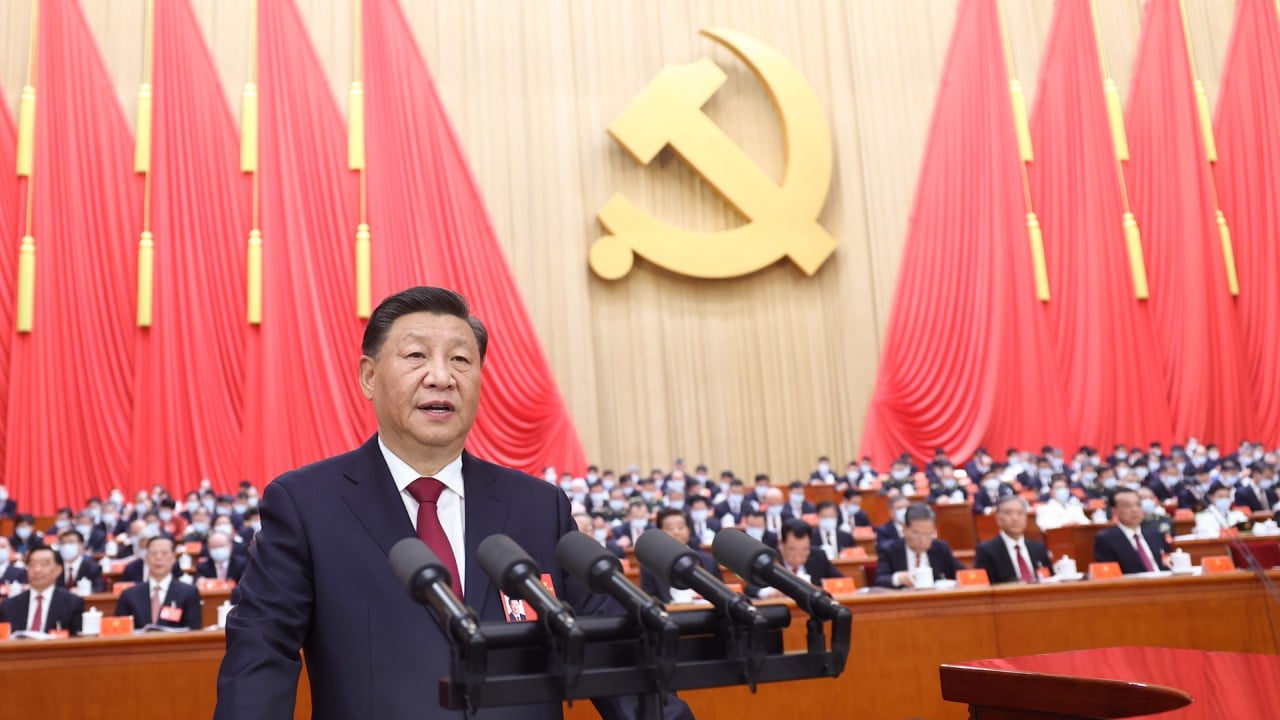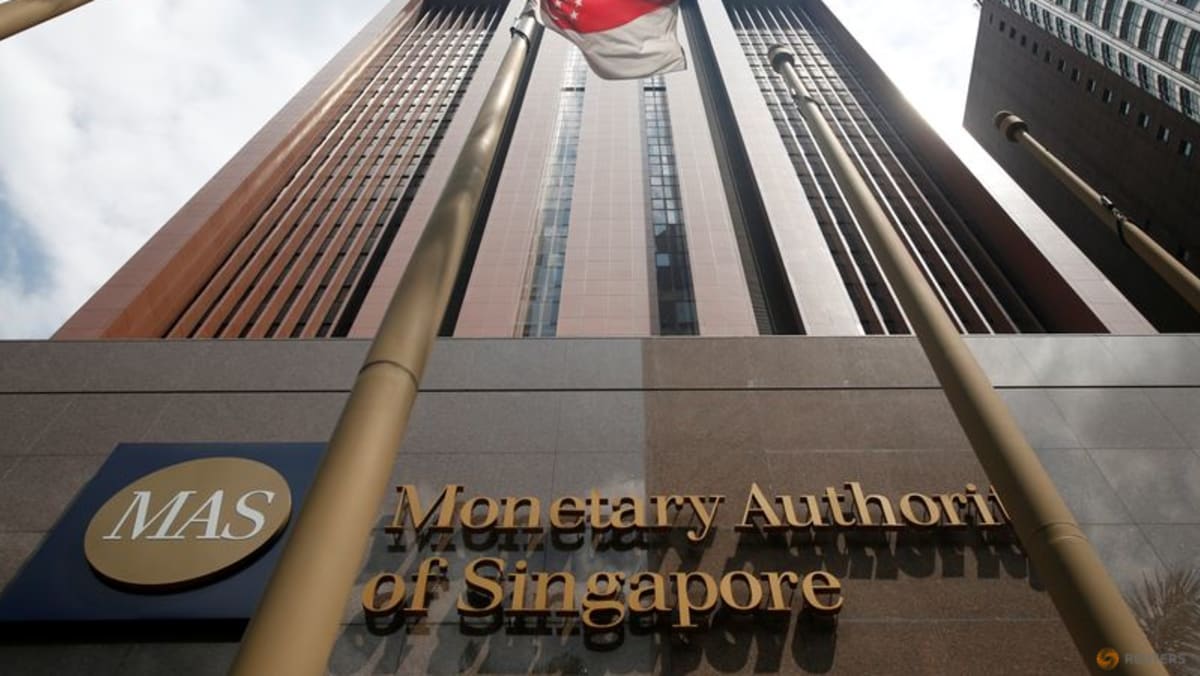It said: “They shouldered the same mission: to modernise China, but they were faced with different circumstances.”
But Western critics of Xi remain sceptical about his pledges to reform the economy. They have pointed out that China’s growth rates have significantly slowed over the past decade while Beijing still appears to prioritise state-controlled enterprises over the private sector and foreign investors.
Xinhua tried to address these concerns without directly mentioning the criticisms, saying he had to deal with many complex structural problems and “tough bones that are hard to chew” such as concerns among China’s private sector and international investors.
It said that when he first took office as the party’s general secretary in late 2012, China’s growth rate fell below 8 per cent for the first time since 1999 because of the financial crisis in the West.
“The easy part of the reforms has finished … but Xi refused to rest on the laurels of his predecessors and determined to steam ahead,” it said.
The article said China had introduced more than 2,000 reform measures over the past decade and more than doubled the size of its economy.
It also painted the Chinese leader as a staunch supporter of the private sector and foreign investors, saying: “Xi always bears in mind the needs of private enterprises. He often talks bitterly about the ‘mountains and gates’ [unfair burdens and red tape] private business has to endure.
“When Xi became the party secretary, it was 20 years since we first said in 1992 that China needed to establish a socialist market economy. Yet still, many private businesses could not get a licence.”
It pointed out that he set up China’s first joint-venture bank when he was the vice-mayor of Xiamen in Fujian in 1985 and later became the first party secretary in Zhejiang to take part in events organised by the local private business community.
Xinhua listed many measures Xi initiated to help the private sector and said: “Between 2012 and 2023, the number of private enterprises [in China] more than quadrupled. The share [of private enterprises] in total economic entities rose from about 79 per cent to more than 92 per cent.”
It went on to say that Xi had opened more restricted areas to private capital, adding: “In 2017, China Unicom became the first state telecommunications enterprise to open up to private investors. Tencent, Baidu, Jingdong, Alibaba [which owns the South China Morning Post] and others have all took part.
“The first private bank, the first private railway and even the first private space company were all established [under Xi].”
The article also praised his support for foreign investors, stating that the World Bank had recognised China under his leadership as one of the top 10 economies with the most improved business environment.
“The American company Tesla, for instance, is one of the companies that greatly benefited from these reforms,” the profile said.
“In 2013, Xi directed the establishment of China’s first Pilot Free Trade Zone (PFTZ) in Shanghai. The number of PFTZs has since grown to 22. The whole of Hainan is now a free-trade port.
“He also planned many national-level trade fairs and exhibitions to showcase his vision of trade liberalisation and globalisation.”
The Xinhua piece came amid rising concerns about China’s faltering private investment and growing pessimism in the private sector in the wake of three years of tough Covid controls.
According to the National Bureau of Statistics, private sector fixed-asset investment rose only 0.1 per cent in the first six months of this year, compared with a rise of 3.9 per cent in overall investment.

Private investment also fell by 0.4 per cent last year, while the figure for the state sector rose by 4.9 per cent.
Meanwhile, foreign direct investment dropped by 28.2 per cent year on year in the first five months of 2024.
Many private businesses have complained about policy uncertainties and excessive controls, while overseas critics have asked whether Beijing is turning its back on the private sector.








